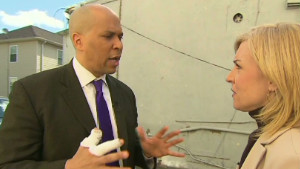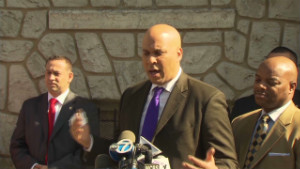(CNN) -- America's top technology companies have approval ratings that most politicians can only dream of, according to a new poll.
And Google, not Apple, is the ultimate object of our digital affection.
A robust 82% of Americans have a favorable opinion of Google, and 53% have "strongly favorable" thoughts about the Web titan, according to an ABC News/Washington Post poll released last last week.
The reigning king of Web search, Google has expanded its empire in the past few years, adding its Android mobile operating system and Google Plus networking site to already popular features like Google Maps and Gmail.
Only 9% of respondents to the poll, conducted from March 28-April 1, held an unfavorable view of Google, while 10% had no opinion.
Google's results put the company squarely ahead of Apple which tallied an impressive 74% favorable rating in their own right. At 13%, Apple's negatives were slightly higher than Google's.
In an analysis of results, pollsters noted that "the time is ripe for this sort of assessment, given these companies' envied positions in the marketplace."
While phones running Google's Android system represent the majority of the world's smartphones, no single phone has come anywhere near the popularity of Apple's iPhone. And the iPad -- the latest incarnation of which went on sale last month, continues to dominate the tablet computer market.
Both Google and Apple fared best with wealthier respondents. In fact, in households earning more than $100,000 a year, 93% of respondents expressed a favorable opinion of Google, 91% of Apple.
The results suggest that recent public-relations dings that both companies have taken haven't soured large chunks of their audiences.
Over the years, Google's near omnipresence online has prompted privacy concerns. Most recently, critics, including some federal regulators and U.S. Congress members, objected to a revamped Google privacy policy that pulls user-activity data from the company's multiple products together to create a single user profile.
And while Apple raked in a record $46.3 billion last quarter, some have complained that virtually all of its products are manufactured in China. Most notably, Foxconn, the manufacturing partner that makes the iPhone and iPad, has been hit with complaints of harsh working conditions.
In an increasingly tech-centric culture, the poll results suggest consumers may be willing to overlook negative news -- even news that impacts them directly -- if they're happy with their digital experiences.
"The services in question, after all, aren't just services; they are, at this point, everyday and intimate components of people's lives," wrote Megan Garber of The Atlantic. "They are, increasingly, implicit."
Facebook, the near ubiquitous social network, didn't fare as well as the top two companies, although with 58% favorable responses, it still has enough votes to get re-elected. But 28% of respondents had an unfavorable view of Facebook -- twice as many as Apple and nearly three times as many as Google.
And for all its popularity among celebrities and in tech circles, Twitter limped in a distant fourth. Just 34% of respondents viewed Twitter favorably, with 36% holding unfavorable views and 31% having no opinion of the micro-blogging site.
The poll was conducted by landline and cell phone among a random national sample of 1,007 U.S. adults. Results have a margin of error of 3.5 points.
 Mayor Cory Booker's 'superhero' moment
Mayor Cory Booker's 'superhero' moment  Mayor Booker downplays 'hero' label
Mayor Booker downplays 'hero' label 






